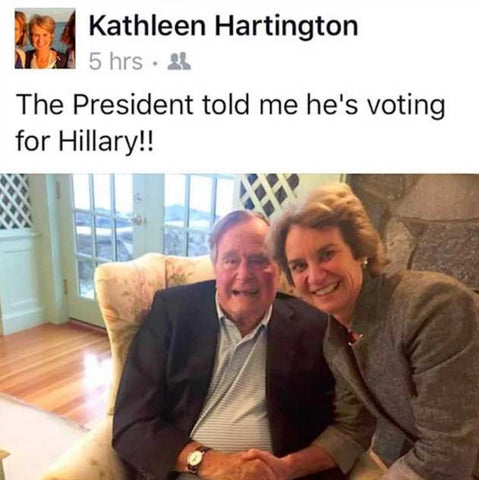
Back in 1981 on the 69th of Ronald Reagan's 2,922 days as president, he walked by a mentally ill 26-year-old with a movie fantasy playing in his head and a .22 pistol in his pocket.
John Hinckley Jr. got off six shots in 1.7 seconds at a range of 15 feet. None seemed to hit the president, as agents shoved him into the bulletproof limo.
None, except that sixth bullet. It ricocheted off limo armor and entered Reagan's body in the left armpit, stopping less than one inch from the president's heart.
The president would lose half his blood. Minutes later, with blood pressure falling far below what any 70-year-old is expected to survive, Reagan lifted his oxygen mask and told the operating-room crew, "I hope you are all Republicans."
Laughter erupted.
"Mr. President," said surgeon Joseph Giordano, a liberal Democrat, "today we are all Republicans."
In 2016, that sadly touching moment of national unity seems bizarre, strangely cinematic. It's hard to believe real people in the nation's crippled capital would utter such sap.
This is the eighth year in the White House reign of a cynical Chicago machine pol who promised to end Washington partisanship and did exactly the opposite.
Congress' job approval is only 20 percent. Both parties are riven by ideological factions and leaders are more concerned with job security than political compromise. The most basic federal functions like budgeting stall in a divided government, which voters decisively elected to counter an aggressive executive branch.
The economy is stalled. The military is decaying. And leaders seem unable to perceive the terrorism threat as imminently as citizens.
Just six weeks away looms a presidential election between two heartily disliked, distrusted candidates who, true to American political tradition, are fiercely dividing the country into Us and Them.
Everything is seen through a political prism from Federal Reserve interest rate decisions to FBI choices on prosecutions.
Small wonder then that Gallup just found a shrinking minority of Americans (42 percent) have a great deal or fair amount of trust in their political leaders. That's down from 63 percent just three elections ago.
The current president, who has barely 16 weeks left on his White House lease, has offered copious criticisms, not of his own work, of course. But he critiques American institutions and Americans, most recently to audiences in Asia. And we have reports of Russia-sponsored hackers breaking into state election operations to undermine confidence in our election system.
Two-of-three Americans now say the country is on the wrong track. I spend a lot of time on social media and I'm surprised it's only two-thirds.
The poisoned partisanship smogging our land nowadays was captured for me in a little-noticed event that caused much ensuing political conversation. Kathleen Kennedy Townsend - yes, another one of them - thought she should be governor some years back. Maryland voters decided otherwise.
Somehow, the Democrat wangled an encounter with President George H.W. Bush the other day. He's 92 now and no longer nimble. So, escape was not an option.
In the privacy of the booth, I cried the first time I cast a ballot and have voted the political spectrum ever since. Naively, I assumed others did the same.
She leaned down by him for a photo and apparently asked who he was voting for. According to her excited, immediate Facebook post, the Republican said Hillary Clinton.
Now, I don't care who anyone including Ted Cruz votes for or why - party loyalty, habit, conscience, whatever. In the privacy of the booth, I cried the first time I cast a ballot and have voted the political spectrum ever since. Naively, I assumed others did the same.
I do not know President Bush well. I know he was a carrier attack pilot, shot down in World War II. I know he founded an oil company, served in the House, as U.N. ambassador, envoy to China, chairman of the Republican National Committee, director of Central Intelligence and Reagan's vice president.
I visited his Houston home and we chatted a few times during his oldest son's first presidential campaign. The elder Bush was surprisingly open and friendly, remarkably free of guile and pretense for a politician at that level.
He told me he knew two weeks before the 1992 election that he would lose to Bill Clinton with Ross Perot splitting the Republican vote. How did you get up in the morning? I asked. He shrugged. You have to keep trying, he said. Who knows what might happen?
I can just see the last commander-in-chief to serve in World War II looking up at his visitor the other day and politely making similar innocent conversation.
What I can't see, even in this partisan time, is that woman then rushing out to violate an old man's confidence for a cheap Facebook post.
Her announcement did succeed in angering supporters of Trump, who've seen many mainstream GOPers similarly walk away. And it ignited talk of those traitorous Bushes putting conscience ahead of the party that helped elect two of them.
So, in that sense, the incident also helps display how much the political tone of our country has changed since the frightened unity of that day in the Washington operating room when the life of a conservative Republican was saved by the skills of a liberal Democrat.
Andrew Malcolm
McClatchy Washington Bureau
(TNS)
Comment by clicking here.
Malcolm is an author and veteran national and foreign correspondent covering politics since the 1960s.



 Contact The Editor
Contact The Editor
 Articles By This Author
Articles By This Author